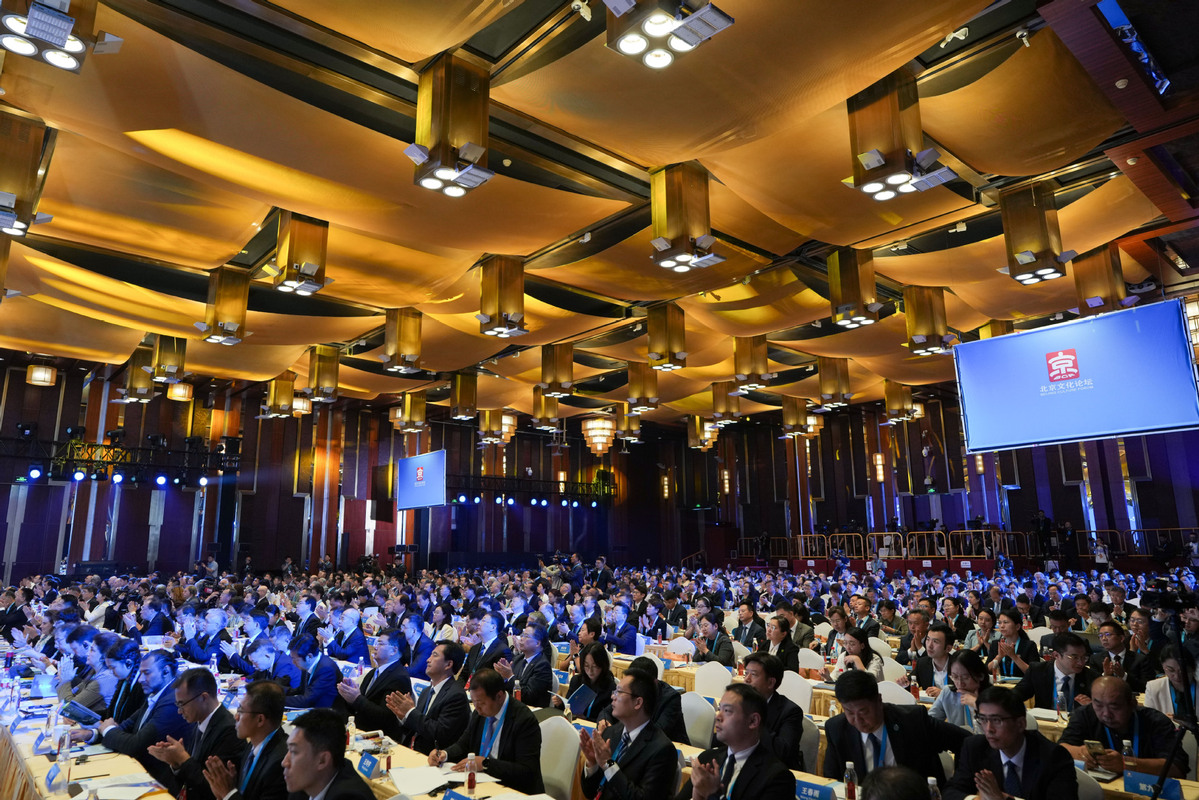China's dedication to heritage protection, digital innovation commended at forum

As artificial intelligence reshapes creative industries globally, experts, scholars and officials from across the world convened in Beijing to discuss the integration of science and technology with cultural development.
Themed "Integrated development of culture and technology", the 2025 Beijing Culture Forum, which opened on Tuesday and runs through Wednesday, attracted more than 800 guests from 58 countries and regions to participate in its forums and discussions.
Addressing the forum's opening ceremony, Li Shulei, a member of the Political Bureau of the Communist Party of China Central Committee and head of the Publicity Department of the CPC Central Committee, highlighted the integration of culture with science and technology as a significant feature of China's cultural development in the new era.
READ MORE: Think tank report highlights China's approaches to cultural heritage protection
Li noted that the rapid advancement of digital technology has led to the global popularity of Chinese digital cultural products, such as online literature, web series, online games, short videos and livestreaming, which have also become avenues for cultural exchanges.
To grasp the direction of the integration of culture and technology, he said that by adhering to value guidance, technology should be utilized as a tool and means to ensure it consistently serves cultural inheritance. He mentioned China's fourth national cultural relics survey as an example, highlighting how the use of innovative technologies led to the discovery of many significant relics.
Li also expressed a willingness to enhance cooperation with other countries in the field of cultural heritage.
Yin Li, Party secretary of Beijing, said that in the capital city, new forms of cultural business represented by internet culture, entertainment, gaming and game animation generated nearly 1.6 trillion yuan ($225 billion) in revenue, injecting great vitality into the city's various sectors.
Former French prime minister Jean-Pierre Raffarin remarked that China is particularly qualified to discuss the intersection of culture and technology, as the country boasts a rich historical heritage and has achieved significant technological advances.
Lazare Eloundou Assomo, director of UNESCO World Heritage, praised China for its unwavering commitment to world heritage protection and its leadership in digital innovation.
"With 60 World Heritage sites, China has demonstrated how the power of technology can be harnessed to safeguard cultural treasures while enriching public understanding and engagement," Assomo said, adding that cutting-edge tools are transforming the way cultural heritage is protected across the country.
He said he expects a future in which every World Heritage site can benefit from the full potential of digital technology — as a standard tool for conservation, management and education.
ALSO READ: World Heritage sites bear new fruit
In a letter to the Beijing Culture Forum, French Culture Minister Rachida Dati discussed the impact of technology on culture, saying that France, like China, firmly believes culture is related to innovation, investment and economic growth, and is directly influenced by the capacity of disruptive technologies for innovation and growth.
Dati emphasized that AI is particularly likely to bring about profound changes in the cultural sector worldwide. She also said that while this field is full of opportunities and innovation, it urgently needs regulation to protect and promote cultural diversity on an international scale.
Other participants attending the forum pointed out that new technologies like AI could lead to risks such as data breaches and the spread of misinformation. They also warned that competition in digital technology could exacerbate imbalances in technological development, thereby affecting cultural diversity.
Contact the writer at dengzhangyu@chinadaily.com.cn


